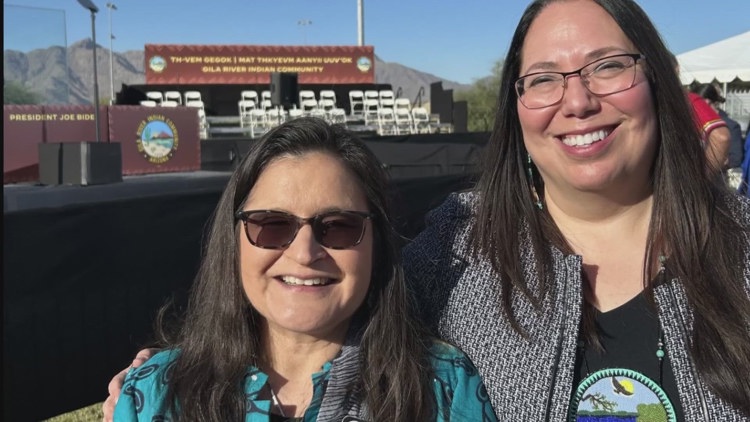PENNSYLVANIA, USA — Washington state Supreme Court Justice Raquel Montoya-Lewis is no stranger to history.
In 2020, she became the first Native American to be sworn in as a justice on any state’s supreme court.
Bullied as a child, Montoya-Lewis, said she was inspired to fight for justice by her great-grandmother, Ki-Ot-Se.
“The things that happened to me were painful and sad, but they weren't dehumanizing in the way that I know she experienced because I can see it in the pictures,” said Montoya-Lewis.
In 1880, Montoya-Lewis’s great-grandmother was taken from her New Mexico family and forced to attend the Carlisle Indian Industrial School in Pennsylvania for four years.
She was given an American name, Mary Perry.
That was just part of the federal government’s attempt to assimilate Indigenous children into white American culture.
“Trying to literally kill the Indian within her,” said Montoya-Lewis, “Becoming Christians and praying in a certain way, and not praying in their traditional way, having their hair cut.”
Between 1819 and 1969, the U.S. government operated hundreds of boarding schools nationwide.
The state of Washington had 15, the most of the western states, according to an investigation by the U.S. Department of the Interior.
The report identified 18,000 children who attended the schools and nearly 1,000 died. Researchers estimate the actual number is higher.
Last week, President Joe Biden apologized for what he called a "sin on the nation’s soul."
"I formally apologize as the President of the United States of America for what we did,” said Biden, “I formally apologize!"
Montoya-Lewis was invited to attend the public apology.
”It really was a stunning experience from start to finish,” said Montoya-Lewis, ”It really made me think so much about, you know, how much my ancestors had to survive just for me and for my children to be here.”
Montoya-Lewis said she hopes the apology is only the beginning of the healing process between Indigenous people and the U.S. government.
She wants survivor’s stories documented.
”Certainly, there are people who are 100, and there are people who are 15 who have experienced tremendous pain at the hands of these schools, and they deserve to be heard,” said Montoya-Lewis.
She said the federal government should consider paying reparations to those suffering emotional trauma.
When asked what her great-grandmother would think about Montoya-Lewis’s success in the legal profession and reaching the highest court in the state, Montoya-Lewis said she was not sure because of what was taught at the boarding schools.
”That the best person she could be would be someone who would pass for white,” said Montoya-Lewis, “I think she might, might not, like how proud I am of who I am.”



